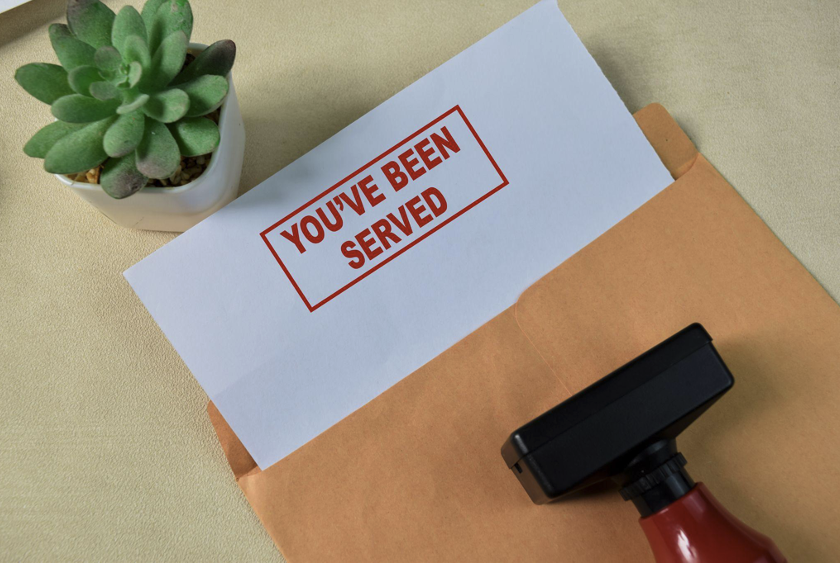
Process servers are third parties that deliver documents to individuals involved in a legal case. They are responsible for informing defendants so legal procedures can be followed. Without process servers, a case might be delayed or even dismissed.
While process servers traditionally serve documents in person, they may also call. Often, this happens as the last option for process servers if they can't find the individual to serve documents. With many scams, this may make you wonder: do process servers leave voicemails?
Our article is here to answer this question and help you identify process server scams. Read on to learn how legitimate process servers do their job and identify scams to protect yourself.
Process servers typically serve legal documents in person. They usually find the individual who needs to be served and deliver legal documents at home, work, or even while running errands. There isn't a specific law that limits when or where someone can be served.
Due to the nature of their jobs, process servers rarely call to inform an individual that they are going to be served. Process servers tend to avoid this, as it allows the defendant to avoid being served. For this reason, process servers rarely call.
While a process server may call if they fail to locate the defendant and serve legal documents after multiple tries, they must be honest about their identity if it happens. They cannot deceive an individual by claiming that they are delivering a package, for example. Process servers must identify themselves properly and explain that they will serve legal documents.
Now that you know process servers may call to serve legal documents, what about leaving voicemails? Although it is uncommon for process servers, they may leave a voicemail to request that you call them back.
As for serving legal documents over the phone or even via voicemail, you can't be served in either way. A process server must hand you the legal documents in person for it to be legitimate.
If you've received a call from a process server, be skeptical right away, as it isn't a common practice. When talking on the phone, don't reveal personal information or make payments.
While it is completely up to you to disclose your location or address, remember that you aren't required to help a process server. After all, it is a process server's job to find you, and you're better off keeping the conversation brief, as there are countless scams.
Although a process server calling you doesn't necessarily mean it is a scam, you can be certain that it is if a "process server" asks for your personal information, like date of birth and Social Security number, or demands money for your legal troubles to go away.
Legitimate process servers rarely call and simply show up at your address. With all this said, it is best to treat any call from a process server as a red flag, even though it might come from a legitimate one.
Do process servers call? Do process servers leave voicemails? We've answered all of these questions, but to ensure you stay safe, find out if a number really belongs to a process server.
A quick Google search on the phone can reveal the information you're looking for, as most process servers work as independent contractors and share their contact information to get jobs.
Optionally, run the number through a phone search website, if you can't find anything about it on search engines. Websites like this are more sophisticated in finding people by phone number.
After running a search, you will reveal the caller's identity and occupation. If the caller is a legitimate process server, you will know about it. On the other hand, if the call is from an irrelevant person or a fake number, you will have your reason not to answer and forget about it.
While not answering calls from process servers may bring worries, thinking that you might potentially get into legal trouble, you aren't legally required to communicate with a process server over the phone. You're better off never answering these calls and considering all of them as scams.